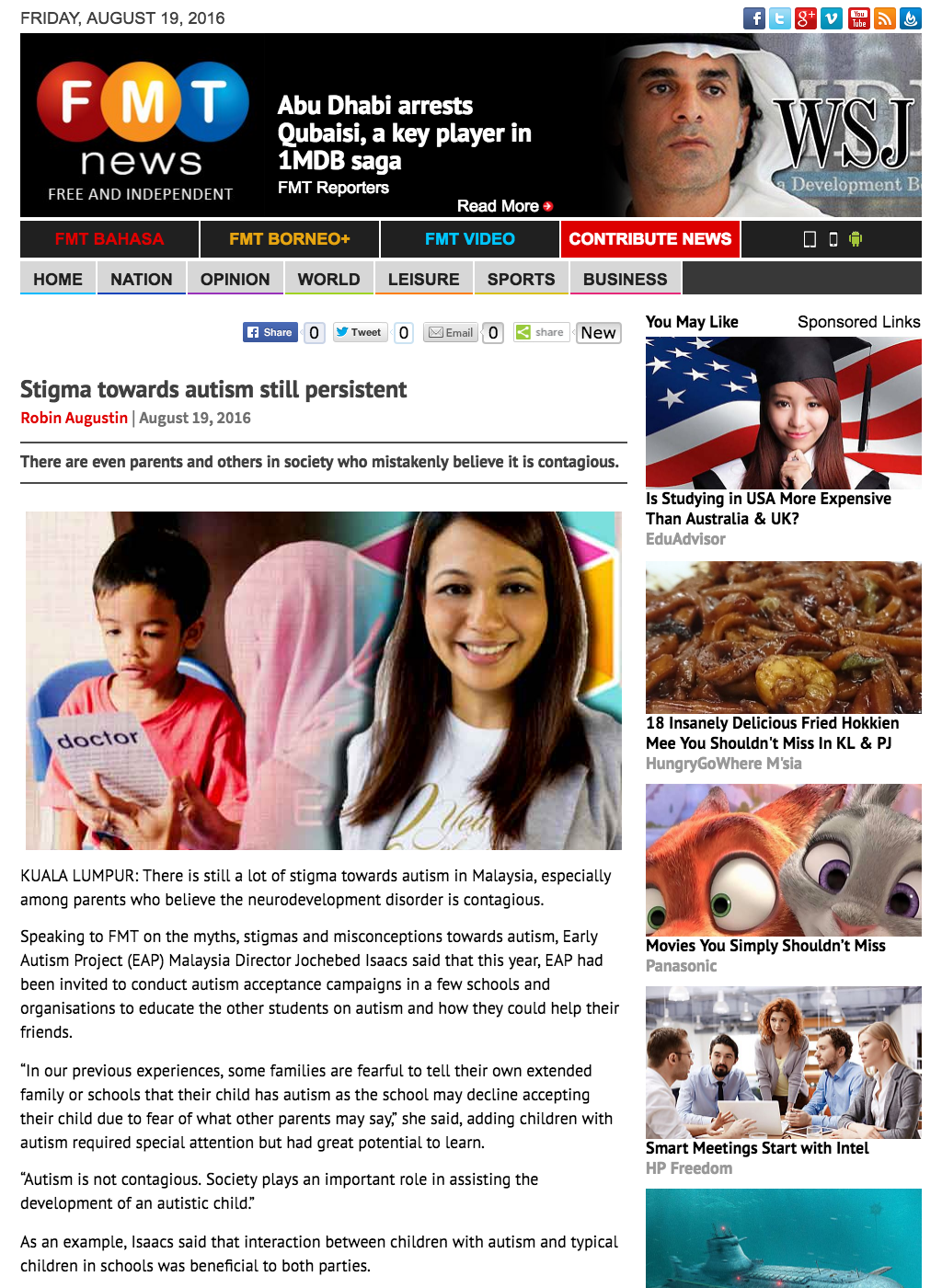
[Feature Article] Free Malaysia Today: Stigma Towards Autism Still Persistent
Free Malaysia Today featured us in an article talking about the stigma towards autism.
—
Stigma Towards Autism Still Persistent
Published in: Free Malaysia Today
Published on: 19th August 2016
Written by: Robin Augusting

KUALA LUMPUR: There is still a lot of stigma towards autism in Malaysia, especially among parents who believe the neurodevelopment disorder is contagious.
Speaking to FMT on the myths, stigmas and misconceptions towards autism, Early Autism Project (EAP) Malaysia Director Jochebed Isaacs said that this year, EAP had been invited to conduct autism acceptance campaigns in a few schools and organisations to educate the other students on autism and how they could help their friends.
“In our previous experiences, some families are fearful to tell their own extended family or schools that their child has autism as the school may decline accepting their child due to fear of what other parents may say,” she said, adding children with autism required special attention but had great potential to learn.
“Autism is not contagious. Society plays an important role in assisting the development of an autistic child.”
As an example, Isaacs said that interaction between children with autism and typical children in schools was beneficial to both parties.
She said children with autism would benefit from socialising and interacting with typical children, and this in turn taught typical children the values of compassion, patience and helping others.
In countries like the United States, Isaacs said, society was very open about autism and awareness was high among the people. This helped bring about greater discourse on autism.
She said when people talked about it more, then more could be done to address and treat it at an early stage.
She also said that parents should not blame themselves when their child was diagnosed with autism.
“Naturally, any parent would feel guilty. This is part of the grieving process, and parents need to take time to process it, acknowledge it, accept it and then only will they be in a healthy place to focus on the intervention.”
She said autism was treatable, though at present, there was no evidence that it could be totally cured.
The goal, she said, was to help the child with autism maximise their potential and overcome as many of the challenges they face as possible, be it social interaction, communication, or repetitive or restrictive behaviour patterns.
“There is no limit to what they can achieve.”
According to a 2015 report by Star Online, the Health Ministry estimated that as of 2010, one in 600 Malaysian children was born with autism.
A private service provider, EAP assists individuals with autism using the Applied Behavioural Analysis (ABA) method.